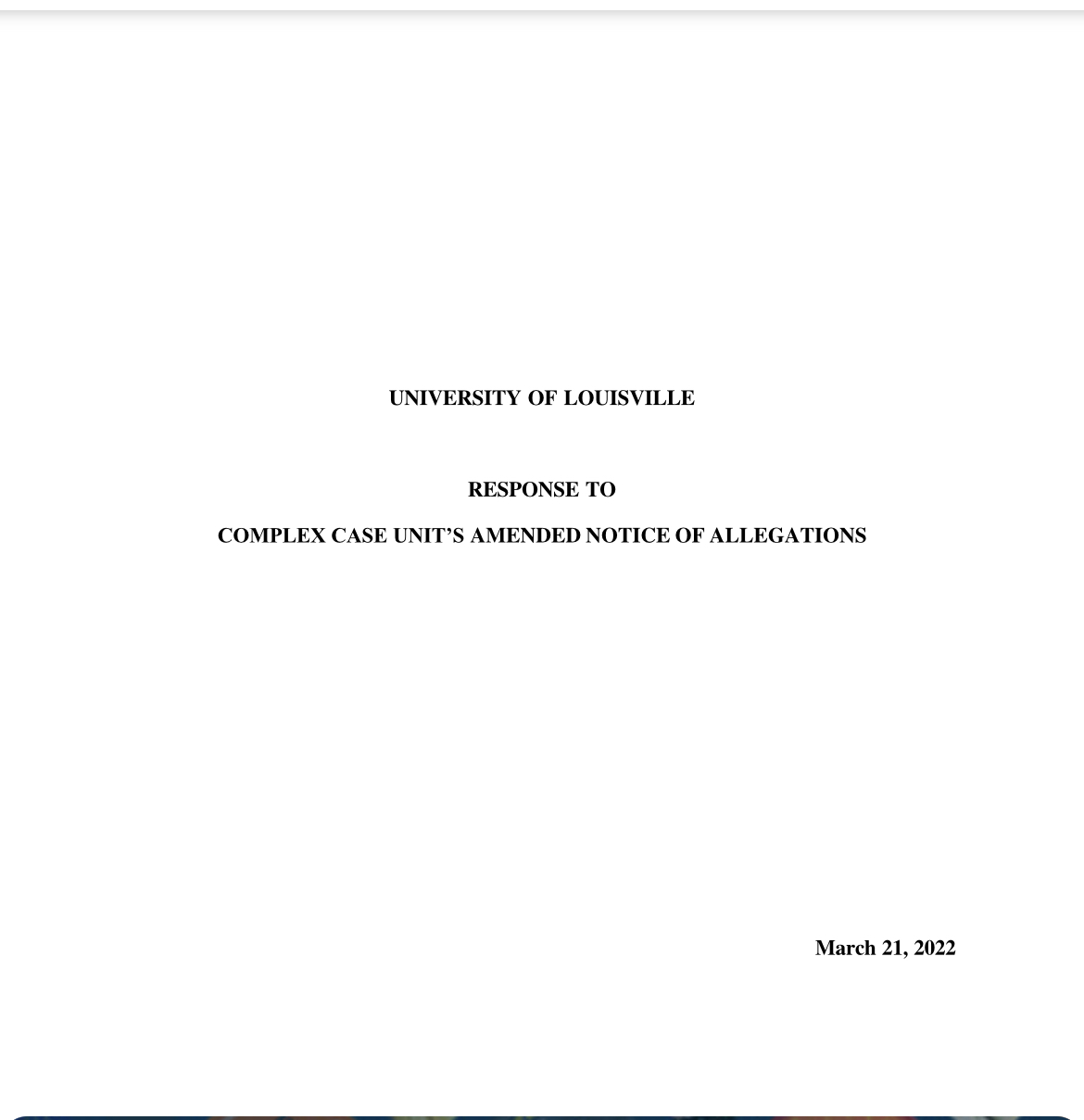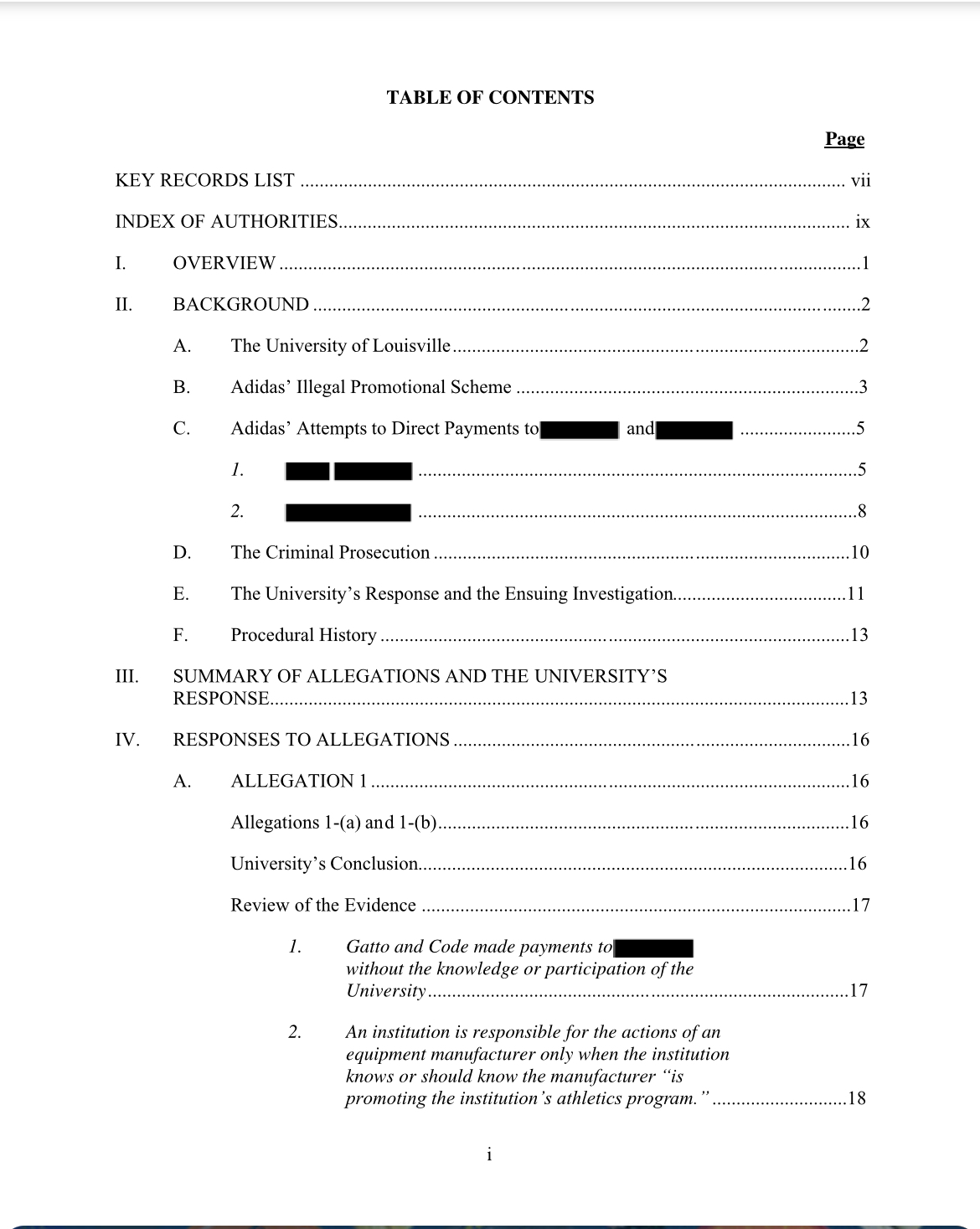

Open records victory in the courtroom has apparently become so commonplace that it merits only passing reference.
In a story about the University of Louisville’s efforts to convince the NCAA to downgrade Level 2 violations stemming from, among other things, recruiting videos — which the NCAA characterized as a "significant breach of conduct” — to Level 3 violations — which UofL “acknowledg[es]” but contests the “purported severity” of, the Courier Journal reports:
“Uof L provided copies of recruiting and practice videos to the Courier Journal after Jefferson Circuit Judge Susan Schultz Gibson granted the newsroom's motion to compel disclosure of public records associated with the school’s NCAA infractions case last Friday.
“Though Gibson ruled the university ‘has willfully violated the Open Records Act as a matter of law by wrongfully withholding the materials sought and arguing that these materials are covered as preliminary,’ U of L continues to withhold interview transcripts and other documents while it appeals.”
https://www.courier-journal.com/story/sports/college/louisville/2022/06…
From this, we infer that UofL accepted, in part, the Jefferson Circuit Court’s ruling and released the recruit videos, but that the university continues to withhold other contested documentation while it appeals the circuit court’s resolution of remaining open records issues.
The case for treating the recruit tapes as “preliminary” is, in fact, even less compelling than the unsuccessful arguments advanced by the University of Kentucky in an open records dispute that culminated in the 1992 case, University of Kentucky v Courier Journal.
https://law.justia.com/cases/kentucky/supreme-court/1992/91-sc-000034-d…
There, the Supreme Court of Kentucky rejected UK’s argument that it’s response to the NCAA allegations of rules violations — stemming from an incident in which members of the University’s athletic staff sent a package containing $1,000 in cash to a basketball recruit in Los Angeles, California — was exempt from public inspection.
Rejecting UK’s reliance on the privacy and law enforcement exceptions to the open records law, now found at KRS 61.878(1)(a) and (h), respectively, the Court held that “the entire Response of the University was a public record which is not exempt from public disclosure under the Act.”
https://apps.legislature.ky.gov/law/statutes/statute.aspx?id=51393
The Court also rejected UK’s reliance on the preliminary documents exceptions, now codified as KRS 61.878(1)(i) and (j), observing:
“The submission of the report to the NCAA by the University constitutes final action of the University, an agency subject to the disclosure requirements contained in the Act. Further, investigative materials that were once preliminary in nature lose their exempt status once they are adopted by the agency as part of its action.
“We agree with the Court of Appeals that once the University made full and complete disclosure of the materials contained in the Response to the NCAA, it subjected these documents to full disclosure once the University's action became final.”
It is likely that the Jefferson Circuit Court relied heavily on this analysis in determining that UofL’s invocation of the preliminary documents exceptions was misplaced. The finding of willfulness —warranting imposition of attorney’s fees — is more
surprising.
https://apps.legislature.ky.gov/law/statutes/statute.aspx?id=23066
Previous opinions of the high court indicate that “‘willful’ connotes that the agency withheld requested records without plausible justification and with conscious disregard of the requester's rights.”
https://casetext.com/case/city-of-fort-thomas-v-cincinnati-enquirer
A finding of willfulness turns on the following factors:
“the extent of the agency's wrongful withholding of records; the withholding's egregiousness; harm to the requester as a result of the wrongful withholding, including the expense of litigating the matter; and the extent to which the request could be thought to serve an important public purpose.”
As noted, the Courier’s story states that the Jefferson Circuit Court determined that UofL “willfully withheld” records relating to the NCAA allegations, but does not indicate whether attorney’s fees and penalties were awarded and, if so, in what amount.
We will share more information about the case when it becomes available.



